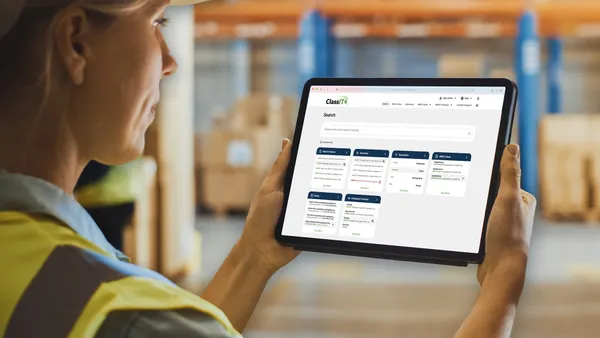All industries have entered the digital era in some way, shape or form and, naturally, some are harnessing the potential of digital more than others. Supply chains today rely heavily on digital technologies to ensure accuracy, delivery and optimization, but, are they using these technologies to their full potential?
A recent study conducted by McKinsey revealed that the supply chain industry had the lowest level of digitalization out of five sectors, standing at a modest 43%. However, this is set to change with technologies such as the Internet of Things and machine learning transforming the industry, and software revenue in supply chain management forecast to exceed $19 billion by 2019.
Big data and the supply chain
The exponential growth of big data has had a profound effect on the supply chain and logistics industry. The correct use and analysis of the vast amount of data available to a business has the potential to transform supply chains as we know them, but also the power to disrupt. Without the appropriate tools and expertise to manage large amounts of data, organizations can become overwhelmed and unable to gain valuable insights, causing issues across the supply chain and wider business functions.
By using big data solutions to properly manage an influx of data, supply chains can be rapidly enhanced by improving efficiency, cost optimization, responsiveness and greater integration. Using digital technologies to drive transformation in supply chains is becoming increasingly popular – although with 94% of organizations stating digital technology will transform supply chains, only 44% have a digital strategy in place to get there.
The digital risk
Understandably, businesses are racing to join the ‘big data movement’, however, this move doesn't come without risk. Cybercriminals are always on the hunt for different ways to hack into a business's data, potentially causing millions of dollars' worth of damage.
“Supply chain leaders must assess their company's risk culture to determine their readiness to explore and adopt emerging offerings”

Christian Titze
Research Director, Gartner
The more digitalized a supply chain becomes, the more at risk they become to a cyberattack. As a supply chain grows on a global scale, this will mean trusting elements of the chain to third-party suppliers, which - if not properly mitigated - can have severe repercussions. It is essential for a business of any scale to have a proper cybersecurity policy in place to effectively manage and mitigate risk throughout their supply chain network.
The future of the industry
This is an exciting time for the supply chain industry, which is forecasted to grow from 145,000 people in 2016-17 to 161,000 in 2021-22. An online Master of Supply Chain and Logistics Management at RMIT University ensures that logistics professionals have the skills necessary to implement strategic management and manipulate data to make informed business decisions. The comprehensive program provides individuals with the real-world, applicable skills to design and scale supply chains on a global level.










